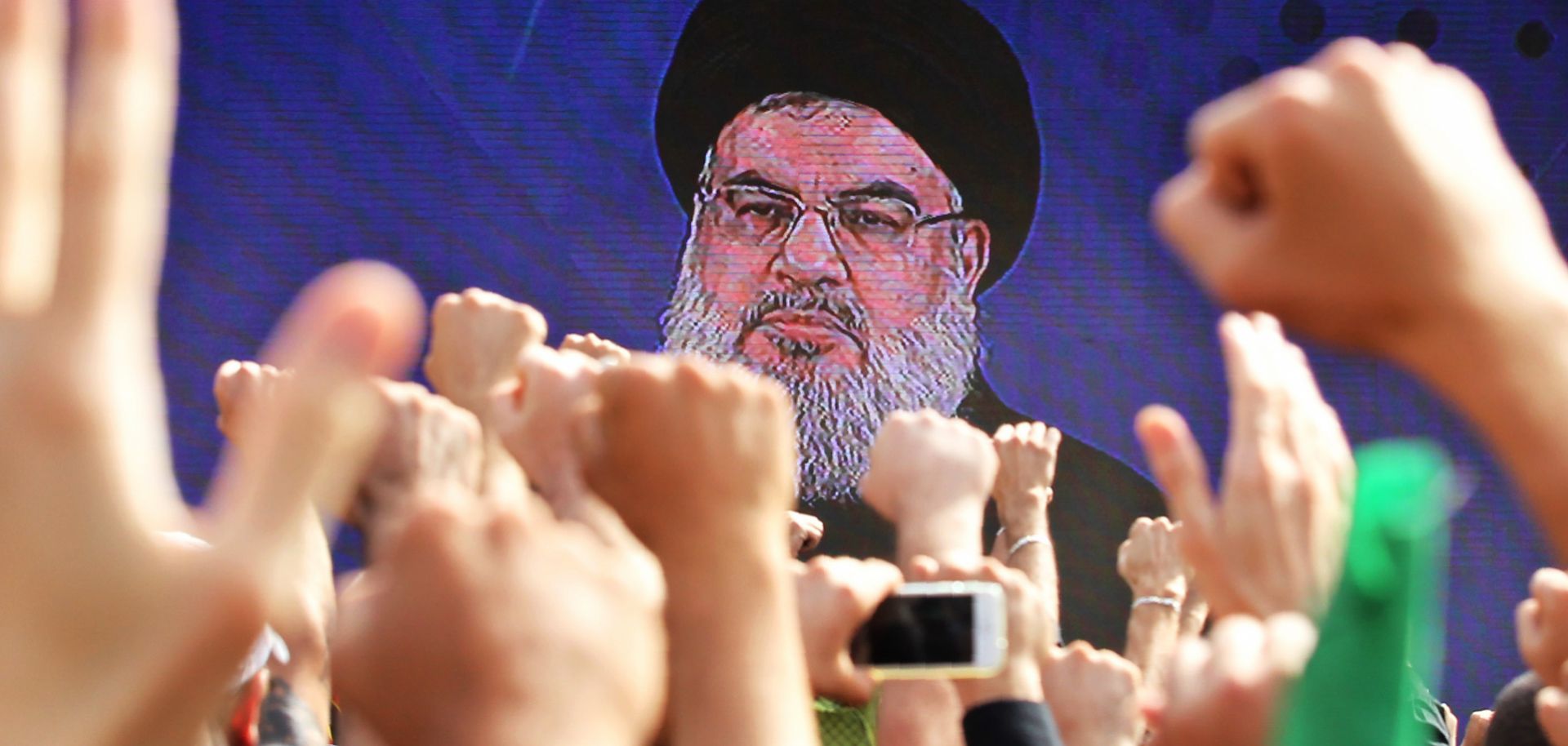ASSESSMENTS
What the End of Lebanon's Power Vacuum Would Mean for the Rest of the Middle East
Oct 29, 2016 | 16:50 GMT

Hezbollah supporters hail leader Sheikh Hassan Nasrallah. The group has enough support to block Lebanon from electing a president during its 46th try.
(ANWAR AMRO/AFP/Getty Images)
Subscribe Now
SubscribeAlready have an account?
